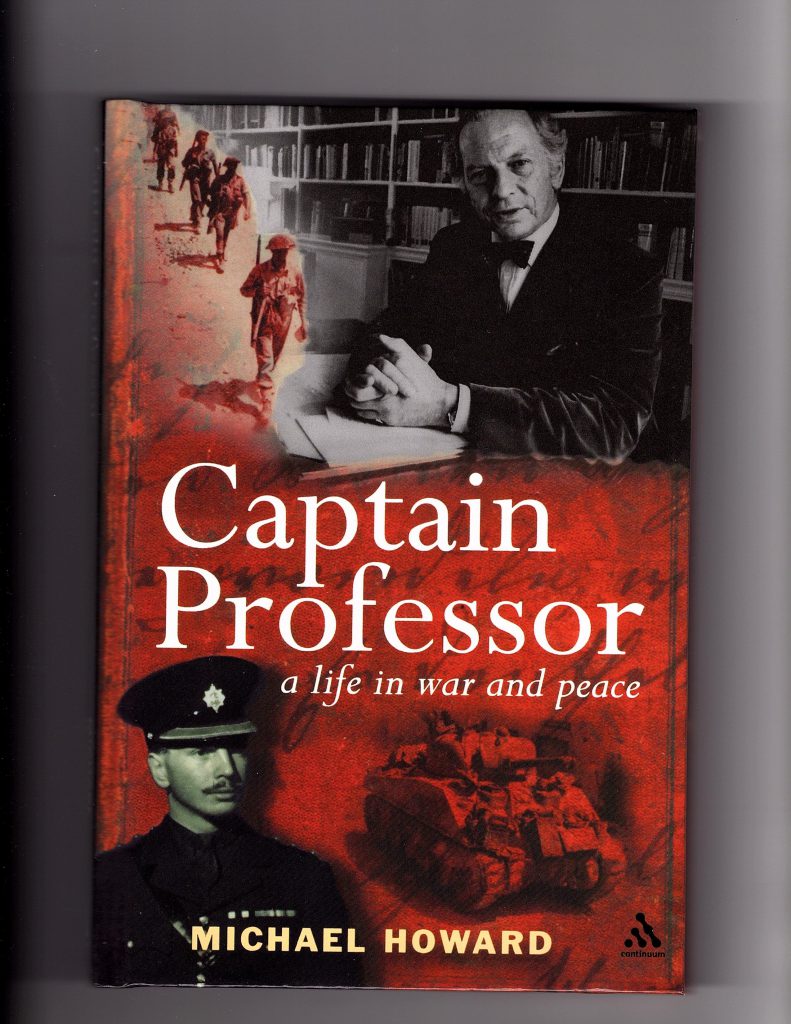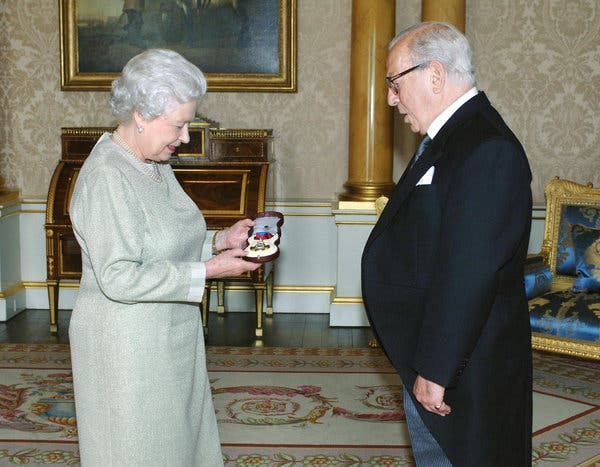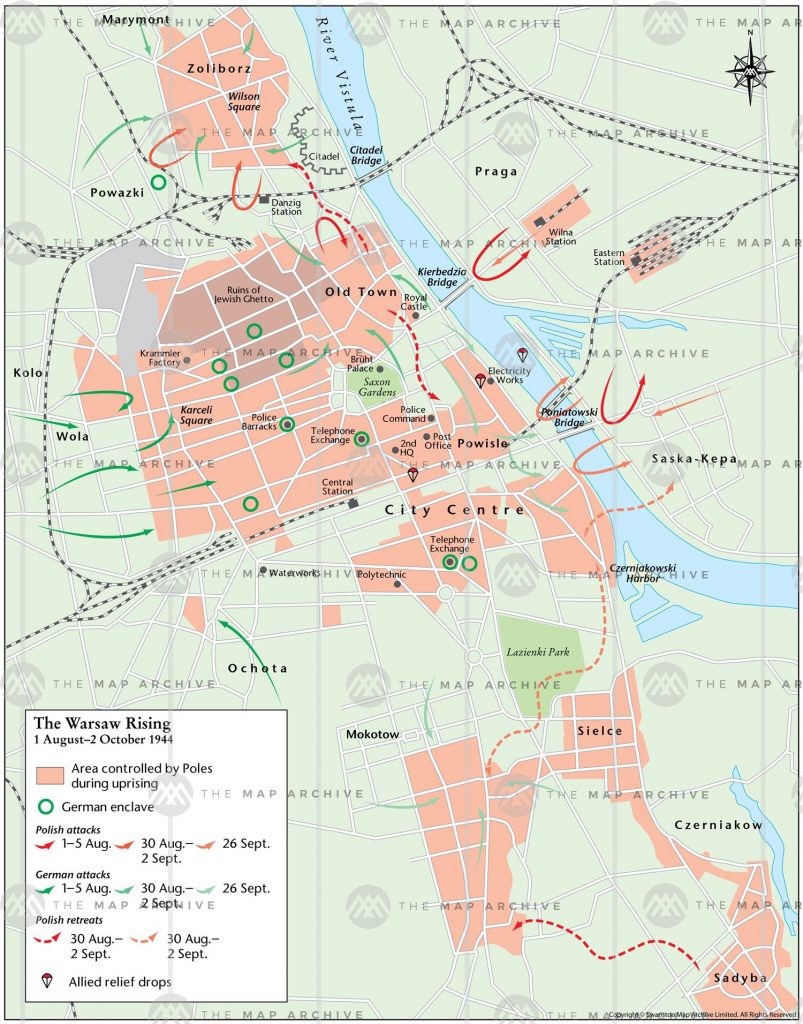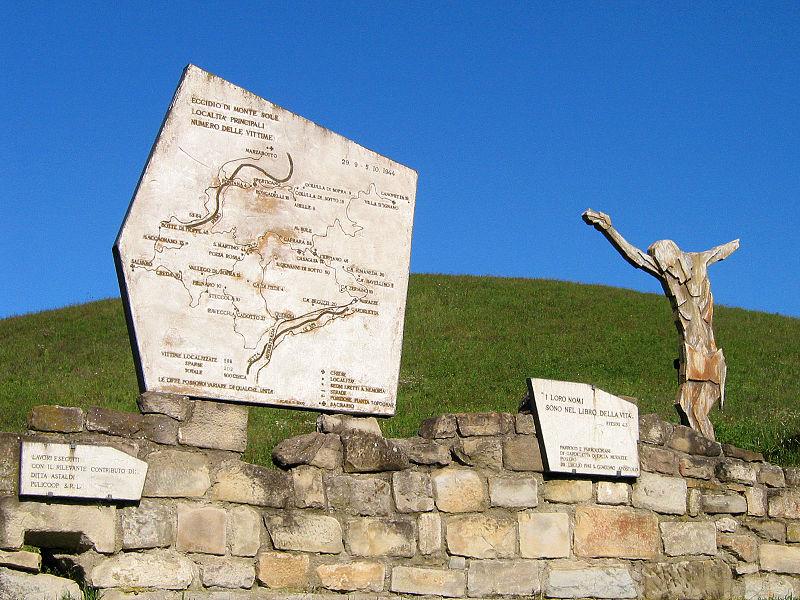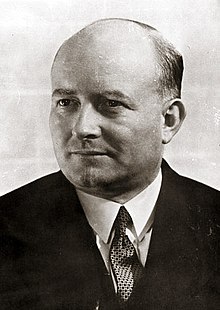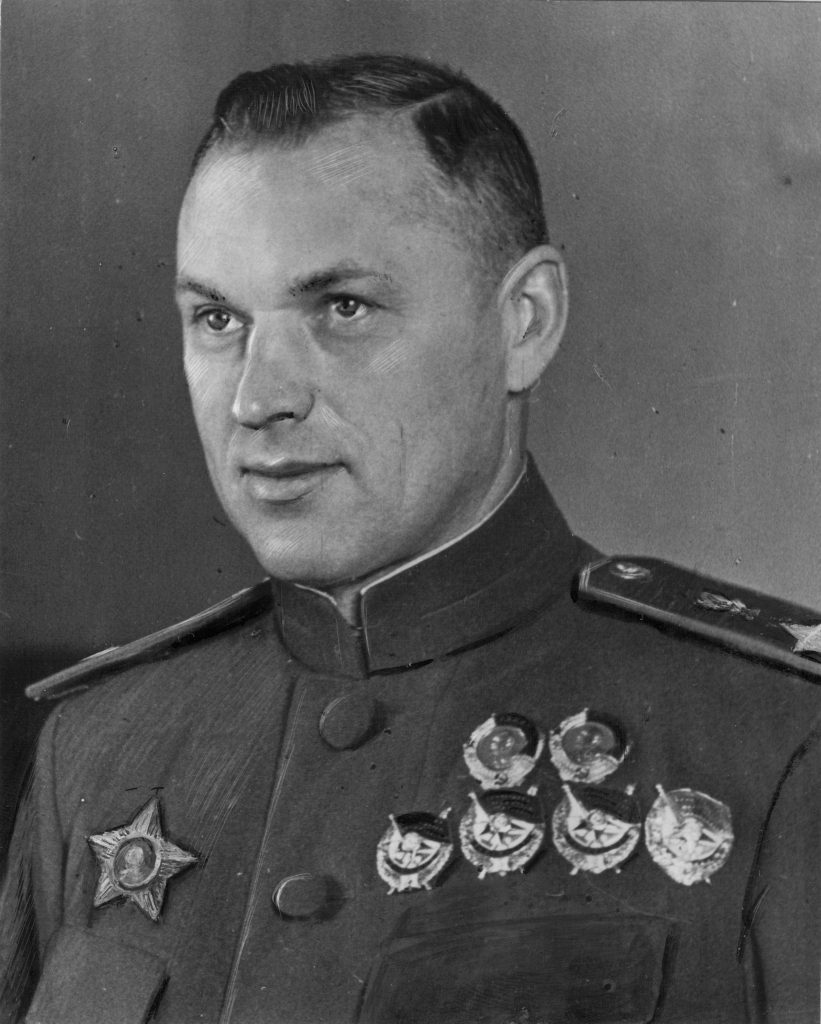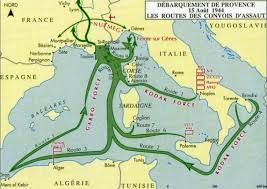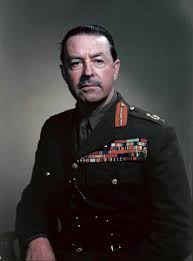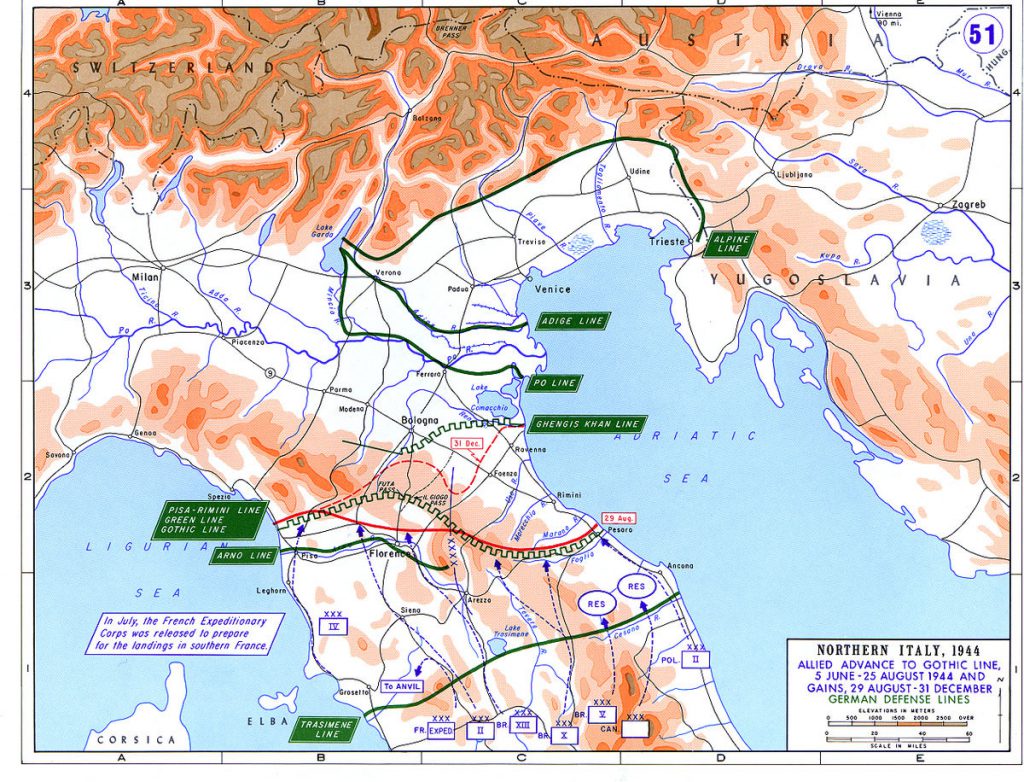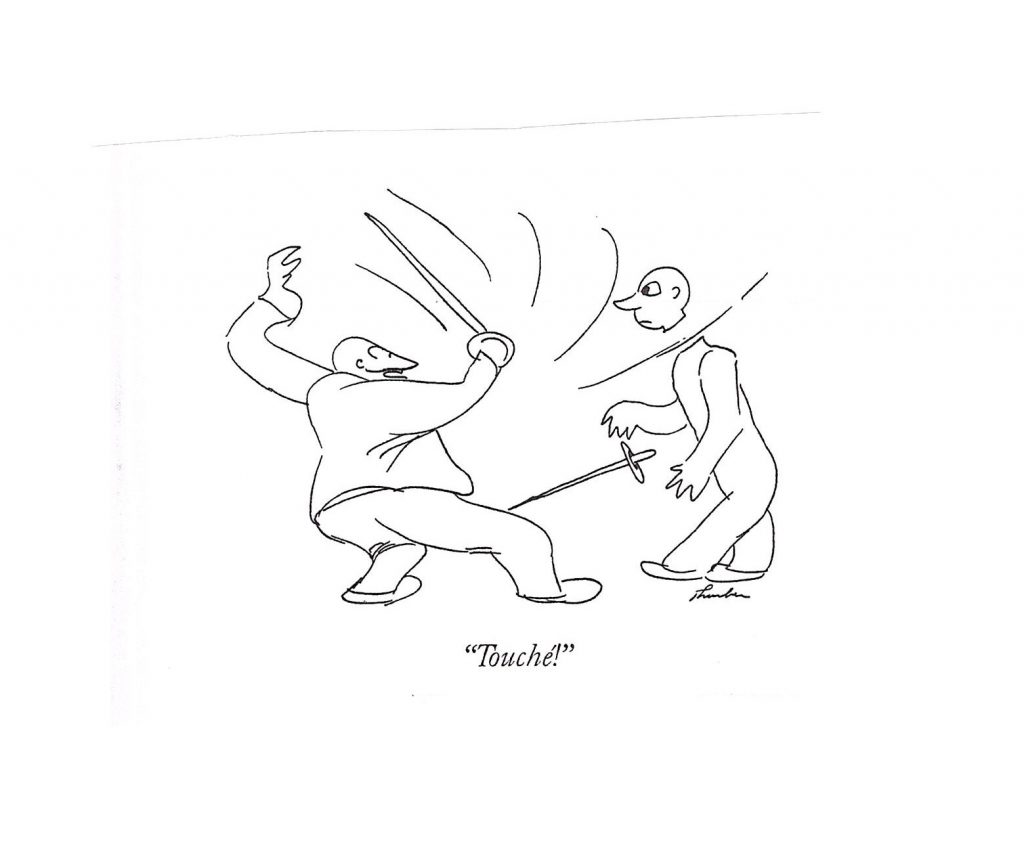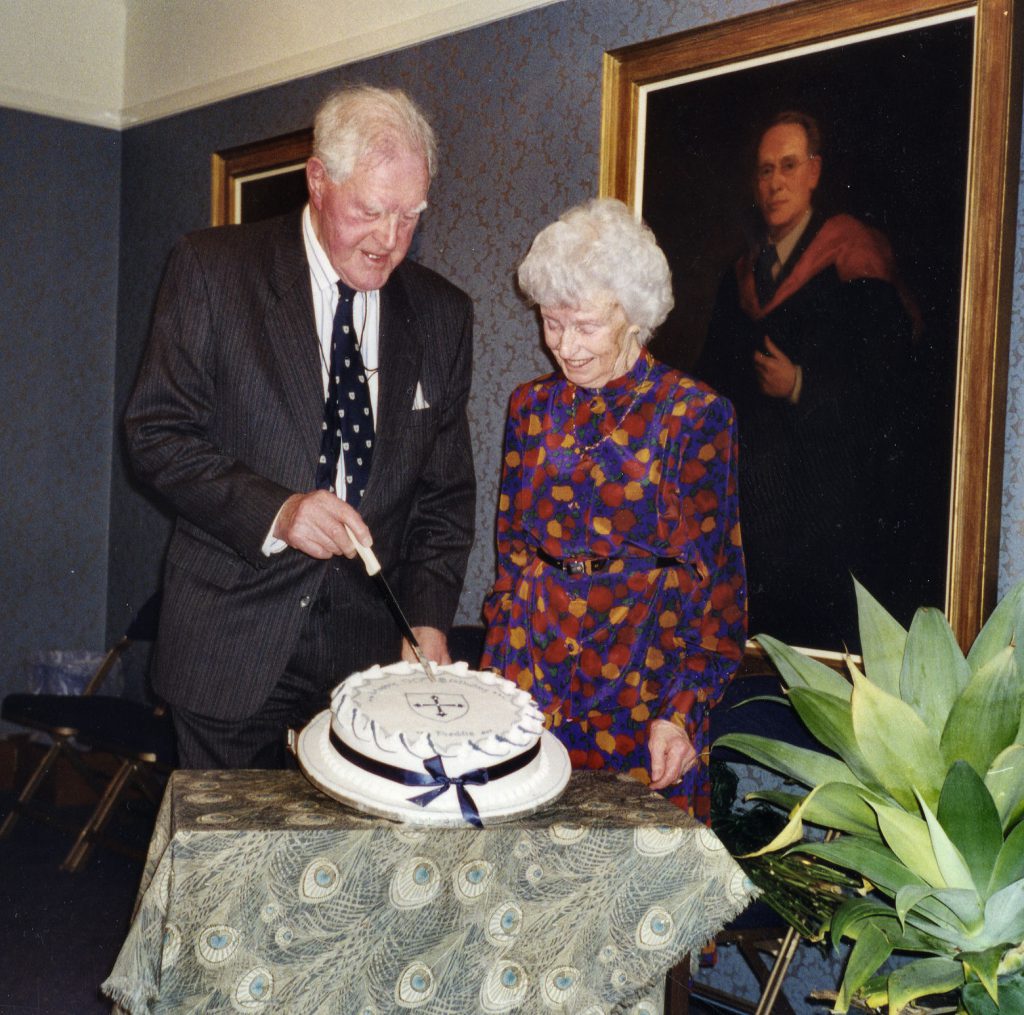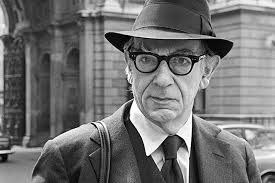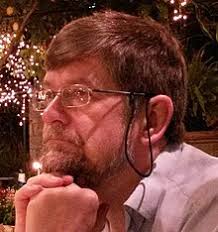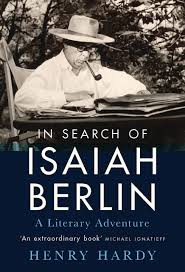[In Part 1 of this segment, I analysed the way in which Rudolf Peierls tried to frame his life and career. He almost managed to conceal a murky connection with the Soviet authorities, but a study of archives, letters and memoirs strongly suggested a hold that Moscow exerted over him and his wife. In Part 2, I investigate how the network of physicists in Britain in the 1930s helped to enable Peierls’s close friend and protégé Klaus Fuchs to thrive, and explore how Peierls tried to explain away Fuchs’s ability to spy under his watch.]
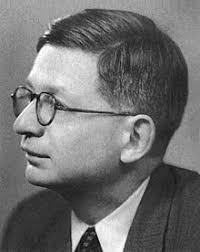
When those UK public servants who aided or abetted the espionage of Klaus Fuchs were judged, whether they were in academia, government, or intelligence, the investigation essentially boiled down to four questions: 1) Were they incompetent? (‘I never knew he was a Communist’); 2) Were they negligent? (‘I knew he was a Communist, but didn’t think it mattered’); 3) Were they timid? (‘I knew he was a Communist, and was concerned, but didn’t want to rock the boat’); or 4) Were they culpable? (‘I knew he was a Communist, and that is why I recruited/approved him’). The actions of each were highly dependent upon roles and timing: supporting a communist scientist in the 1930s would have been almost de rigueur in physicist circles; in 1941 the Ministry of Aircraft Production was so desperate to beat Hitler that it admitted it had no qualms about recruiting a communist; after Gouzenko’s defection in 1945, and Nunn May’s sentencing, any communist links began to be treated as dangerous; in 1951 Sillitoe and White of MI5 lied to Prime Minster Attlee about Fuchs’s communism in order to save the institution’s skin. In comparison, in 1944 the OSS recruited Jürgen Kuczynski (Sonia’s brother, who introduced Fuchs to a member of Soviet military intelligence) because he was a communist. But the post mortems of the Cold War suggested that warning signals should have been made at every stage of the spy’s advancement to positions where he had access to highly confidential information.
Moreover, Fuchs is often presented in contrasting styles. On the one hand appears the superb master of tradecraft, who effortlessly insinuated himself into Britain’s academic elite, convinced the authorities of his skills and commitment, took up UK nationality, and then, with his keen knowledge of counter-surveillance techniques was able to pass on atomic secrets to his handler, Sonia, and later, in 1949, to give away no clues when he was being watched, being betrayed solely because of the VENONA decrypts, and the tenacity of those who followed the leads. On the other hand we see the clumsy communist, who made no effort to conceal his true affiliations, escaped undetected only because of the incompetence of MI5, but carelessly provided possible clues by visiting his sister in Boston, and contacting a known Communist (Johanna Klopstech) on his return to the UK in 1946. Moreover, he drank ‘like a fish’, according to Genia Peierls. When questioned, he was foolish enough to confess to espionage when anyone else would have brazened it out, with the result that his Soviet spymasters were disgusted with him.
Would it not have made more sense for Fuchs to soften his communist stance, thus avoiding a complete volte-face and loss of credibility with his leftist peers in England, but suggesting he was more of a vague theoretician than a firm believer in the Stalinist paradise? In this respect the relationship to Fuchs of Rudolph Peierls, as his mentor and recruiter, is especially poignant. In this article, I examine what is known about Peierls’s and other scientists’ awareness of Fuchs’s true political commitment, and how Peierls danced around the issue in the years after Fuchs’s prison sentencing, and later, when Fuchs was released, and left the UK for the German Democratic Republic. I expand my analysis by using the statements and testimony of other scientists who dealt with the pair.
I wrote about Peierls in Misdefending the Realm, and it might be useful to re-present here a few sections from my book that focused on my assessment of Peierls’s role in recruiting Fuchs to the Tube Alloys project, from Chapter 8:
Peierls’s account of what happened next is deceptive. In his autobiography he claimed that, several months after Fuchs’s release, when thinking about technical help he himself needed in the spring of 1941, he thought of Fuchs. “I knew and liked his papers, and I had met him”, he wrote, dismissing the relationship as fairly remote. Yet he had never written about Fuchs beforehand, and he does not describe the circumstances in which he had met him. His autobiographical contribution is undermined, however, by what he had told MI5. When he was interviewed by Commander Burt in February, 1950, shortly before Fuchs’s trial, he said that he had first met Fuchs “in about 1934, probably at some scientific conference”, but also stated that “he did not know him very well until Born recommended him”. Fuchs was later to confirm that he had met Peierls at a scientific conference “immediately before the war”. An MI5 report of November 23, 1949, states that “Peierls had met Fuchs at a Physics Conference in Bristol, when Peierls had first suggested that Fuchs should work under him at Birmingham”. That occasion was clearly before the war: Peierls and Fuchs had achieved more than merely discuss issues of joint interest, and Peierls clearly misrepresented the closeness of their relationship when speaking to Burt.
Without explaining how he had learned that Fuchs had been released from internment, and had returned to Edinburgh, Peierls stated that he wrote to Fuchs asking him whether he wanted to work with him, even before he (Peierls) had gained permission to do so. He next asked for official clearance, but was instructed “to tell him as little as possible”. “In due course he [Fuchs] got a full clearance, and he started work in May 1941.” One might conclude that the impression Peierls wanted to give is that it was a fortuitous accident that Fuchs’s availability, and his own need, coincided: he conveniently forgot the previous job offer. Moreover, the “and” in Peierls’s account is troublesome, suggesting a sequence of events that did not in fact happen that way. Fuchs had not received ‘full clearance’ by that time: in another item of correspondence, Peierls admitted that he had to wait. The process was to drag on for several months, and some MI5 personnel were later to express horror that the relevant government ministries had proceeded so carelessly in advancing Fuchs’s career without concluding the formal checks. For example, in June 1940, Peierls had taken Fuchs with him to Cambridge to meet the Austrian expert in heavy water, Dr. Hans Halban, who was a member of the exclusive five-man Tube Alloys Technical Committee: Fuchs’s training was assuredly not being held back.
Moreover, Peierls’s account does not correspond with other records. It is clear from his file at the National Archives that Fuchs was recommended for release from internment in Canada as early as October 14, 1940 (i.e. shortly after the meeting of the Maud Technical Sub-Committee), and that the termination of his internment (to return to Edinburgh) was officially approved a few weeks later. This followed an inquiry by the Royal Society as early as July 1940, since an MI5 memorandum states that “the Royal Society included Fuchs on list of scientists they wanted urgently released soon after Fuchs sailed on Ettrick on July 3, 1940.” An ‘exceptional case’ was made on October 17, and the Home Office gave Fuchs’s name to the High Commissioner for Canada. These requests would later appear very provocative, as a defined role for Fuchs appeared to have been described very early in the cycle. Yet, after his arrival in Liverpool in January 1941, the Immigration Officer specified very clearly to the Superintendent of the Register of Aliens that Fuchs would not be able to “engage in any kind of employment without the consent of the Ministry of Labour”.
It would at first glance be quite reasonable to suppose that Peierls had initiated this action, especially given the curious testimony of Fuchs’s supervisor at Edinburgh, Max Born. In a letter dated May 29, 1940, Born had written (to whom is not clear) that, despite Fuchs’s being “in the small top group of theoretical physicists in this country”, he and the others should not be freed from internment. Furthermore, Born wrote that “there are strict regulations that prohibit any liberated internees to return to the ‘protected area’ where they live”. “Even if they would be released they could not join my department again”, he added. Either this was a deliberate deception by Born, to provide a cover-story, or he had a quick change of heart, or he was sincere, but was overruled, the British government wishing to maintain the fiction that everything happened later than supposed. The third alternative can probably be discounted, as Born soon after began writing to influential persons, trying to gain Fuchs’s release, immediately after his arrest, and himself vigorously tried to find Fuchs remunerative employment as soon as he learned about Fuchs’s release from internment. In any case, the earlier statement represented an unnecessarily severe judgment, made just over two weeks after Fuchs’s interrogation and arrest, and its only purpose can have been to smooth the path of Fuchs’s employment elsewhere after his eventual release. [pp 217-218]
And:
In fact, correspondence between Peierls and the pacifist-minded Born suggests that the two collaborated to find Fuchs employment very soon after his release from internment was approved. It appears the two scientists knew each other well. In the summer of 1936, Born (whose position at Cambridge had come to an end) had received an invitation from Kapitza to work for him in Moscow. The fact that Kapitza appeared then to be an unreformed Stalinist, writing in his letter of invitation: “Now, Born, is the time to make your decision whether you will be on the right or the wrong side in the coming political struggle”, did not deter Born. He considered it so seriously that he started taking Russian lessons from Peierls’s wife, Eugenia, but instead assumed the chair of Natural Philosophy at Edinburgh University in October 1936. Laucht’s study of Frisch and Peierls refers to letters exchanged between Peierls and Born in November, 1940, where they explored opportunities for placing Fuchs successfully. This correspondence continued during the spring of 1941, with Peierls expressing extreme dedication towards bringing Fuchs into his camp. “Although it looked initially as if Fuchs would not make the move to the University of Birmingham, Peierls remained tireless in his effort to find a job for the talented physicist at his university. In the end, he succeeded and offered Fuchs a temporary position,” wrote Laucht. Thus Peierls’s version of the recruitment process can be interpreted as another self-serving memoir attempting to distance the author from a traitor. All this was known by MI5: they had gained Home Office Warrants to read the correspondence.
Max Born, moreover, was far from innocent in helping Fuchs on his mission. In his two items of autobiography, he relentlessly reminds his readers that he had no competence in nuclear physics, a convenient pretence for his attitude of non-participation and pacifism. Yet in his later, more comprehensive volume he related the episode of a visit to Cambridge in the summer of 1939, where he met the nuclear physicist Leo Szilard, and how, on his return, he shared with Fuchs Szilard’s conviction that an atom bomb could be made. He was then unequivocal that Fuchs knew that the nature of the work he would have to be engaged in was nuclear weapons research, with the goal of defeating Hitler, as he claimed he tried to talk Fuchs out of it. Just as Peierls did in his own memoir, Born concealed the fact of the correspondence between the two exiled scientists at the end of 1940, supporting the lie that it was Peierls’s sudden request for Fuchs in May of 1941 that occasioned the latter’s transfer from Edinburgh to Birmingham. [pp 220-21]
What
new material can shed further light on this story? In some ways, the sources
have become sparser. In recent years, previously available files concerning
atomic weapons and energy research, including vital files on Klaus Fuchs, have
been ‘retained’ by UK government departments for unspecified reasons. (see, for
example:
https://www.the-tls.co.uk/articles/research-brought-halt-national-archives/ and
https://www.theguardian.com/world/2018/dec/23/british-nuclear-archive-files-withdrawn-without-explanation ) Very recently, some of the files on Sonia’s family have been inexplicably withdrawn (’closed while access is under review’). In his 1997 biography of Professor Chadwick (the head of the British mission to assist in the Manhattan Project), Andrew Brown wrote: “Some of the wartime letters between Chadwick and Peierls that have never been released in England were available at the National Archives, but possibly as a result of the Gulf War, they were recently recensored by the US authorities” – an extraordinary admission of foreign interference. The Cleveland Cram archive of CIA material at Georgetown University has been withdrawn, at the CIA’s request (see: https://theintercept.com/2016/04/25/how-the-cia-writes-history/). Sabine Lee’s publication of the Letters of Rudolf Peierls has usefully extracted a number of communications between the scientist and his colleagues and contacts, but the emphasis is very much on technical matters, most of the letters appear in the original German, and the volume is very expensive.
On the other hand, a careful examination of the archival material of fringe figures (such as the enigmatic Herbert Skinner), and the articles, book reviews, memoirs and biographies of scientists who engaged with Peierls and Fuchs in the 1930s, 40s and 50s can reveal a host of subsidiary detail that helps to shed light on the process by which Fuchs was allowed to be adopted by Peierls, and approved for work on Tube Alloys.
The Physicists
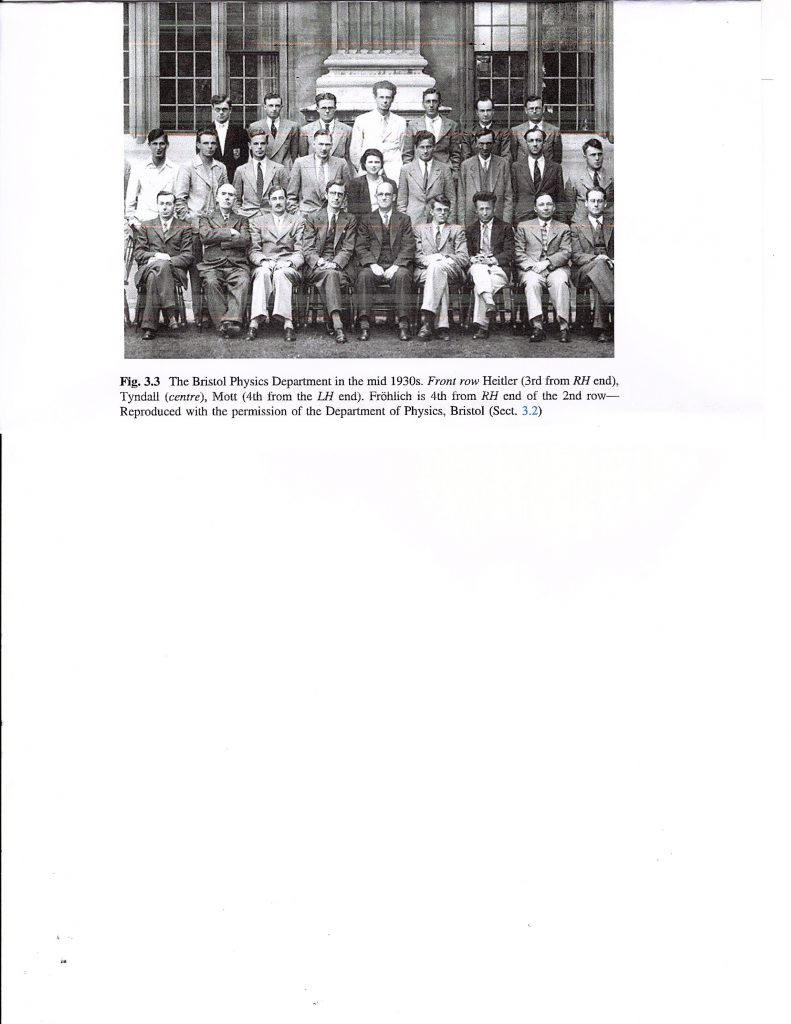
The saga started at the University of Bristol, where a fascinating group of future luminaries was assembled in the 1930s. Klaus Fuchs arrived there, in October 1933, and was introduced to Professor Nevill Mott by Ronald Gunn, who was a director of Imperial Tobacco, was described by many as a Quaker, but was also a strong communist sympathiser. Gunn had visited the Soviet Union in 1932, had met Fuchs in Paris in 1933, and had sponsored his move to Bristol. The university admissions board accepted Fuchs as a doctoral student of Mott, who held the Melville Wills Chair of Theoretical Physics. Mott and Gunn were both alumni of Clifton College, as, indeed, was Roger Hollis, the controversial future chief of MI5. Mott had taken up his new position only in the autumn of 1933, at the young age of twenty-six, and one of his new colleagues was Herbert Skinner, to whom he was indebted for helping focus his research. Professor Tyndall’s history of the Physics Department also credits Skinner with endorsing the selection of Mott.
Skinner was later to become Fuchs’s boss at AERE Harwell, where Fuchs was to conduct an affair with Skinner’s ‘Austrian-born’ wife, Erna, described as ’glamorous’ in one memoir. Skinner had been appointed a Henry Herbert Will Research Fellow at Bristol in 1927, and was given a more permanent position as Lecturer in Spectroscopy in June 1931, which he held until 1946. In October 1934, Rudolph Peierls’s long-time friend, colleague and correspondent Hans Bethe arrived, but he stayed only four months before leaving for the United States to take up a chair at Cornell University. Soon after that, however, Herbert Fröhlich was added to the faculty. (I wrote about his miraculous escape from the Soviet Union in Part 1 of this analysis.) Fröhlich was appointed Lecturer in 1944, and Reader in 1946. He stayed until 1948, when he was appointed as Professor of Theoretical Physics at Liverpool University. Ronald Gurney was another Soviet sympathiser, a member of the local Communist Party, working as a George Wills research associate from 1933 to 1939, and contributing, alongside Fröhlich, to Mott’s research on semiconductors and crystals. (Ironically, Fuchs would later tell the FBI that Gurney was ‘a security risk’ because he and his wife had at Bristol both been members of the Society for Cultural Relations with the USSR.) Alan Nunn May, the other famed ‘atom spy’ was one of those scientists from King’s College, London, evacuated to Bristol at the start of the war.
Other German-speaking physicists were recruited, and were later, like Fuchs, to undergo internment during the ‘fifth column’ scare of 1940. Christopher Laucht writes, in Elemental Germans: “Other German-speaking émigré physicists who were interned included Walter Kohn and Hans Kronberger, as well as eight members of the physics department at Bristol University: Walter Heitler and his brother Hans, Herbert Fröhlich, Kurt Hoselitz, Phillip Gross and Heinz London, and two of their students Robert Arno Sack and G. Eichholz.” (p 27) Yet it is primarily the exposures of Mott, Born, Skinner, Gurney and Fröhlich to Klaus Fuchs, supplemented by the careers of two other important figures, Rotblat and Plazcek, that concern me here.
Nevill Mott
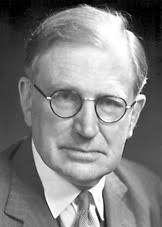
Nevill Mott was ambivalent in his assessment of Fuchs. Mott was some kind of fellow-traveller himself: in his memoir, A Life in Science, he describes how in 1934 he enthusiastically paid a visit to the Soviet Union, ostensibly to attend a conference celebrating the hundredth anniversary of the birth of Mendeleyev. The scientist who invited him, Yakov Frenkel, was the same person who had invited Peierls to Odessa in 1931. Mott had the good (or bad) fortune to be accompanied on the Soviet boat by Sidney Webb. He recorded part of his experiences as follows: “To me, from England at the height of the depression, Russia appeared as a country without unemployment. At any rate, I wanted to believe in it. It was after the ‘dekulakization’ but before Stalin’s purges. ‘What about the Kulaks?’, I asked a Russian physicist. ‘Well, we had to get rid of the half million rich peasants in the interests of the masses, but now that this has been done there will be nothing more like it, and the future is rosy.’ I believed him.”
Mott could be described as the perfect embodiment of Lenin’s ‘useful idiot’. Admittedly, far greater persons posed the same question. Winston Churchill also asked Stalin about the kulaks, in 1942, although it was a foolish impulse, as the Prime Minister must have known full well by then what the nature and scale of the massacres, deportations and enforced famine had been, and, if he was not prepared to challenge the Soviet dictator on the matter, his question would turn out to be a political victory for Stalin. Mott was naive enough to admit his gullibility, at least: Peierls remained silent after his more tortured visit.
Yet Mott was a little evasive about Fuchs. In a memoir Bristol Physics in the 1930s, he wrote that Fuchs’s ‘views, as we all knew, were very left wing, and at the time of the Spanish Civil War, the rise of Hitler and Mussolini’s invasion of Abyssinia, so were those of many of the young physicists’. In A Life in Science, however, Mott’s awkwardness shines through. First he introduces Fuchs as ‘a political refugee, with communist sympathies’, not explaining how he knew that. He next writes that Fuchs was ‘was shy and reserved and I do not remember discussing politics with him’. But then he relates the famous incident of the meeting of the local branch of the Society for Cultural Relations with the Soviet Union, which he and Fuchs – and maybe others – attended. The description ironically does not comment on those aspects of ‘cultural relations’ that Mott judged worthy of nurturing.
“In Bristol in the 1930s, we had a branch of the Society for Cultural Relations with the Soviet Union. It met from time to time in a studio in Park Street, which disappeared in 1940 in the first big raid on Bristol, (during which I remember walking home from a meeting, with incendiaries falling in the street). We used to dramatize translations of the Soviet treason trials, but which Stalin appears to have got rid of most of his possible rivals. They were accused of sabotage in the interests of the Germans. But my most vivid recollection is of Fuchs in the role of Vishinsky, the prosecutor, accusing the defendents [sic] with a cold venom that I would never have suspected from so quiet and unassuming a young man.” The mystery is a) why Fuchs would go out of his way to express his political sympathies, and b) why Bristol academia would not consider his behaviour outrageous.
Eventually, Fuchs moved on – to Edinburgh University, under Professor Max Born. The record here is again ambiguous. Mott described the action as follows: “After four years I arranged for him to go to the former leader of the Göttingen theorists, Max Born, by then Professor in Edinburgh. Born, in his autobiography, writes that I wanted to get rid of him because he was a communist, but that was not so; we had many refugees in Bristol and needed to think about permanent posts for some of them, and we hadn’t the resources to provide for all.”
Max Born
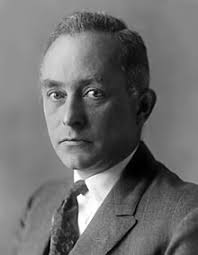
Max Born had escaped from Nazi Germany in 1933, and after taking a position at St. John’s College, Cambridge, was in 1936 appointed to the Tait chair of natural philosophy at Edinburgh University. In an essay in his My Life and Views, Born wrote: “Next, Klaus Fuchs, a highly gifted man who never concealed the fact that he was a communist; after the outbreak of the war and a short internment as an enemy alien, he joined the British team investigating nuclear fission. I think he became a spy not from ulterior motives but from honest conviction.” Apart from the disingenuous claim that ‘ulterior motives’ and ‘honest conviction’ are opposite motivators in the field of espionage, Born makes it quite clear that he knew about Fuchs’s loyalties, writing in My Life about recently arrived scientists at Edinburgh: “One of the first of these was Klaus Fuchs, later so well known through the spy affair in which he was involved,’ as if The Spy Who Changed the World (Michael Rossiter’s clumsy title for his first-class biography, flawed only by its lack of specific references) had been a bit-player in some distasteful society scandal.
This controversy was intensified, however, when the first biography of Fuchs, by Norman Moss, titled Klaus Fuchs: The Man Who Stole the Atom Bomb, was reviewed by M. F. Perutz in the 25 June, 1987 issue of the London Review of Books. Fuchs had taught Perutz the principles of theoretical physics when both were interned in Canada in the summer of 1940. In his review, Perutz referred to the claim made by Prime Minister Attlee in the House of Commons that there had been no evidence that Fuchs had ever been a Communist, and commented: “When I mentioned this to a veteran physicist friend of mine recently, he interjected: ‘But Fuchs and I were in the same Communist cell when we were students at Bristol.’ Max Born, Fuchs’s former chief at Edinburgh, wrote about Fuchs: ‘He never concealed that he was a convinced communist. During the Russo-Finnish war everyone’s sympathies in our department were with the Finns, while Fuchs was passionately pro-Russian.’ On the other hand, Peierls had no idea that Fuchs was a Communist.”
Norman Moss explained more, in a response published by the LRB: “In his autobiography My Life, Max Born, who took on Fuchs as a young researcher, said Sir Nevill Mott told him he sent him away from Bristol University because ‘he spread Communist propaganda among the undergraduates.’ But there is a footnote containing a comment by Sir Nevill to the effect that Born must have misunderstood something he said, because he does not remember his doing any such thing. “In fact, none of Fuchs’s close friends knew he had been an active Communist in Germany. Fuchs did once defend Russia’s attack on Finland in 1939 in an argument with Born, as Professor Perutz says in his review and as I said in my book.”
While this sheds light on the Born-Mott misunderstanding, the final sentences would seem to be a non sequitur. It is worth examining Born’s text more closely. In fact he admitted surprise at the written reasons Mott gave for passing Fuchs on to him, which stressed Mott’s desire to learn more about Born’s ‘special methods’. Born felt that Mott understood such methods very well, and could have thus passed them on to Fuchs himself. The message that Mott later denied was delivered orally at a meeting in London. According to Born: “I enjoyed working with Fuchs so much that I wondered why Mott had sent him away. This was explained when I encountered Mott at a meeting in London. He asked me how I was getting on with Fuchs, and when I answered ‘splendidly’, and praised his talent, Mott said ‘What a pity I had to get rid of him. He spread communist propaganda among the undergraduates’. Mott told me that he had arranged for his own contribution to the general refugee fund to be directed to Fuchs, a generous gesture which possibly also showed how much he was afraid of communist propaganda.”
Does that last statement indicate that Mott was trying to buy Fuchs off? What did it mean that Mott (or Bristol) could not afford to pay Fuchs, but could cover his expenses at Edinburgh? It does not appear to make much sense. In any case, Mott apparently had a chance to review Born’s script before publication, as he was allowed to comment, in the footnote cited by Moss, as follows: “I must have made a remark which Born misunderstood or took more seriously than I intended. I do not remember believing that Fuchs spread communist propaganda among the students, and at a time when Hitler was the enemy I could not have worried unduly if he had. What happened was this. In Bristol we had research funds from the generous gifts of the Wills family, and with these and help from the Academic Assistance Council we built up a very strong group of physicists who had left Germany in 1933. Some we wished to keep; but established positions then as now were few and far between and for others we helped as we could to find jobs elsewhere. This is how we acted about Fuchs.”
A strong measure of truth may have accompanied that last claim, but how come Born could not have been apprised of it from the outset? Why did Mott beat about the bush? And why did he so carelessly misrepresent Nazi Germany’s status as of 1937, when Fuchs moved to Edinburgh? At that time, Hitler may have been a grossly unpleasant threat to leftist scientists like Mott, but he was no more ‘the enemy’ than Stalin was. It was a typically disingenuous footnote by Mott.
Many witnesses seem to be behaving economically with the truth here, including, of course, Clement Attlee, who had been lied to outrageously by Percy Sillitoe, the head of MI5. Yet the most startling item of evidence is the statement by Perutz’s ‘veteran physicist friend’, who talks about membership of communist cells as casually as a British diplomat might refer to his house at Marlborough or Wellington. Who was this friend? And why would Perutz treat his friend’s confession so lightly?
Herbert Fröhlich
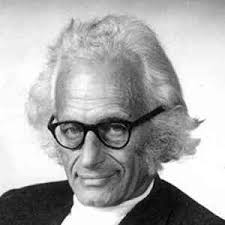
The friend cannot have been Skinner, as Skinner had died while attending a conference in Geneva in 1960. Ronald Gurney had been a member of the CPGB, but he had left for the United States, where he died in 1953. If we are looking for a prominent physicist, of suspected communist affiliation, present at Bristol between 1934 and 1937, still alive in 1987, and a probable friend of Max Perutz, it would be Herbert Fröhlich. And the communist cell may not have been a unit of the Communist Party of Great Britain: it was much more likely to have been the German branch (the KPD). Fuchs regarded himself still as a member of the KPD when in the United Kingdom, and he had made contact with Jürgen Kuczynski, Sonia’s brother, who had arrived in London in 1933, and re-energised the KPD through the front of the Free German League of Culture. Jürgen became head of the KPD in Britain, and was in contact with the GRU representative in London, Simon Kremer.
You will not find a reference to Fröhlich in the biographies of Fuchs by Moss, Edwards, Rossiter or Close. Christopher Laucht, in Elemental Germans, records the contribution to the Maud Committee that Fröhlich made with Walter Heitner, in the field of spontaneous fission in uranium. Yet he glides smoothly over Fröhlich’s time in the Soviet Union, remarking solely that he experienced problems in getting his visa renewed. Laucht does note, however, that Fröhlich also lodged with the Peierlses, and that Peierls managed to gain funding for Fröhlich from the Academic Assistance Council.
G.J. Hyland’s biography of Fröhlich (A Physicist Ahead of His Time, published in 2015) provides the details on Frohlich’s experiences in the Soviet Union, whither he had also been invited by the ever-present Frenkel. Yet Hyland is comparatively bland on the physicist’s career after that, providing a text that is very much directed at the specialist. He does not mention any Maud work, although he does record that Fröhlich, after being released from internment in September 1940, returned to Bristol, but was prohibited from working on nuclear fission – an intriguing contrast to how Fuchs was sought out and approved. During the remainder of the war, Fröhlich ‘was occupied in part-time research for the Ministry of Supply, working initially on an image converter instrument for use on tanks to extend night vision’. Fröhlich was not naturalised until August 1946, but was then offered the position of Head of the Theoretical Physics Division at Harwell. “He declined this offer, however, not wanting to be involved with any work that might further nuclear warfare,” writes Hyland, adding: “Klaus Fuchs was appointed in his place!”
(I welcome any other suggestions as to who Perutz’s communist friend might have been.)
Herbert Skinner
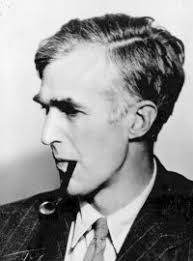
The most mysterious figure in this whole farrago is Herbert Skinner, since he owned an unmatched intimacy and longevity in his relationship with Klaus Fuchs, but his career is the least well documented of all. While his presence at Bristol University in the 1930s has been clearly described, his period in the war years has been sparsely addressed. His biographical memoir as a Fellow of the Royal Society indicates that, from 1939, he performed very valuable work on the detection of submarines by microwave radar, and after experiments in the Shetlands pursued the deployment of the technology at the Telecommunication Research Establishment at Malvern. (Ironically, this type of work was so secret, and so critical to the defence of the nation, that Skinner’s German-born colleagues were prohibited from working on it.) Skinner was then recruited, in 1943, to work as Oliphant’s deputy in California. Mike Rossiter simply notes that Skinner had contributed to the Manhattan Project at Berkeley ‘on electromagnetic separation with Lawrence’, and Frank Close similarly – but not strictly correctly – writes that ‘Herbert Skinner had also spent the war in the Berkeley team, which had studied separation of isotopes and investigated the physics of plutonium’. Skinner merits only one mention in Volume 1, 1939-1945) of Margaret Gowing’s history of Britain and Atomic Energy, when she refers to a Harwell planning meeting he attended in Washington in November 1944. Skinner does not appear in Graham Farmelow’s Churchill’s Bomb.
Skinner came to life again on his appointment at Harwell after the war as head of the General Physics Department. He was also John Cockcroft’s deputy, and in the first half of 1946 selected staff and guided the construction, while Cockcroft was still in Canada. Fuchs was one of those appointments, arriving at Harwell in June 1946. Before the sordid business in the late forties, however, when Fuchs conducted his affair with Erna Skinner, a liaison closely surveilled by MI5 and Special Branch, Skinner appeared with Fuchs in a very strange episode in New York. I introduced this event in my Letter to Frank Close, but it merits deeper coverage here.
The two of them had travelled to Washington in November 1947, in order to attend a declassification conference (November 14-16) where the implications of the McMahon Act on release of information on atomic weaponry and energy were to be discussed. Evidence supplied in 1950 to the FBI is so bizarre that I decided to transcribe here the main section of the report. (I do not believe it has been reproduced anywhere before this. See https://vault.fbi.gov/rosenberg-case/klaus-fuchs/klaus-fuchs-part-05-of/view .) On February 4, 1950, Dr. Samuel Goudsmit * informed the FBI that Dr. Karl Cohen, who was head of the Theoretical Physics Division, and thus Fuchs’s counterpart in the Atomic Energy Program, had described to him how Fuchs, after meeting Cohen at a restaurant, had later called his counterpart, asking him to pick up a hat he had left at the restaurant and return it to the person from whom he had borrowed it on West 111th Street.
[* Goudsmit had been the head of the Alsos project, which set out to determine how close the Nazis were getting to the creation of an atomic bomb. After the war, he appears to have been a regular contributor to the FBI, the CIA and SIS. His name comes up as an informant in the Pontecorvo archive.]
The FBI interviewed Cohen on February 9, 1950. He described his encounters with Fuchs at Columbia University and in Los Alamos, and then went on to explain that he had no further meeting with Fuchs until the declassification conference. His testimony is presented as follows:
“Cohen was told by Dr. Willard Libby of the Atomic Energy Commission that he should discuss with Fuchs the declassification of a certain document and make his recommendations to the conference. Cohen received a phone call from a woman who explained that she was a good friend of Fuchs, that Fuchs was staying either at the Henry Hudson Hotel or Park Central Hotel, and that Fuchs wanted to see Cohen. Thereafter Cohen called Fuchs and invited him to his home, which invitation Fuchs declined. He and Fuchs, however, had dinner at a restaurant of Cohen’s choosing, during which time they discussed the declassification of the document, Cohen recommending that it be declassified and Fuchs opposing. Cohen stated that some time after leaving the restaurant, Fuchs realized he had left a hat in the restaurant, which had belonged to the person with whom he had been staying. He asked Cohen to pick it up and return it since he, Fuchs, was leaving town. Cohen said that he regarded this request out of line, but agreed to call the people and tell them where they could obtain the hat. He did this, but the woman declined to retrieve the hat and consequently, a few days later, Cohen obtained it and returned it. It was Cohen’s recollection that Fuchs’ contact was a Dr. Cooper or Dr. Skinner, attached to the British Delegation that was in the United States for the Declassification Conference and who was staying with his wife and her father on West 111th Street. He said that when he returned the hat he met the scientist’s wife and her father. He described the wife as being typically English, but stated that her father was of European extraction and spoke with an accent. He said that on the bell to the apartment house there was the name Cooper or Skinner, as well as the name of the father-in-law. He commented that he would have forgotten this incident had it not been for the recent publicity on Fuchs.” The FBI later confirmed that the names on the bell of 536 West 111th Street appeared as Skinner, Hoffman and Kirsch, and that the apartment was owned by Mrs. Skinner ‘who is presently living in Connecticut’. The report added that ‘she had rented out this apartment to various roomers for the past six years’.
What is one to make of this extraordinary tale? Why was there such a performance around a simple hat? Was there any significance in Erna’s accompanying her husband to New York at that time? What was the role of her father, named Wurmbrand? (Her father was Moishe Michael Wurmbrand, who was born in Sadhora, a suburb of Czernowitz, in 1883 and died in New York in 1952. The claim that Erna was ‘Austrian’, as represented at the National Archives, may have been a convenient fiction, but Bukovina was governed by the Austrian Empire until 1918, after which it lay under Romanian rule until 1940. Skinner’s Wikipedia entry gives her maiden name as ‘Abrahamson’.) Why did Fuchs have to borrow a hat, and why could the Skinners not have picked it up themselves?
A former intelligence officer tells me that he regards the whole episode as an example of complex tradecraft, but, given Cohen’s sure innocence (else he would not have alerted the authorities), it seems a very clumsy effort by Fuchs that risked exposing contacts to the FBI. As I pointed out earlier, when speaking to the FBI, Fuchs identified the property as belonging to Mrs. Skinner, overlooking her husband’s presence. (I believe I misjudged the knowledge of the FBI about Cohen, and his role, in my earlier piece. And the FBI surely was aware of the joint mission of Fuchs and Skinner, although the report, rather dimly, states that ‘it would appear probable that Mrs. Skinner is the wife of Dr. W. H. B. Skinner . . . who was one of the members attending the Declassification Conference . . .’) Perhaps Cohen was used, as an unwitting and innocent accomplice, to send a message about a completed project from the restaurant to the Skinners – or Erna’s father. Fuchs may have left a message at the restaurant chosen by Cohen, but wanted confirmation of its receipt to be delivered to Erna and her father by an unimpeachable medium. In any case, the incident shows that all the biographers of Fuchs have failed to exploit the considerable information about him in the FBI Vault.
How much did Herbert Skinner himself know what was going on? Why would he not have mentioned this incident to MI5 himself, given the suspicions he later claimed to have had about Fuchs? And why would the FBI not have made some connection? I have found no evidence of it in the obvious places. The FBI’s Robert Lamphere came to London with Hugh Clegg in May 1950, after Fuchs’s conviction, to interview the spy, and extracted from him the photographic recognition of his contact Harry Gold. Lamphere reports that Clegg, who was not familiar with the case, brought a copy of the whole Fuchs file with him, and read it on the plane. But Lamphere does not even mention Skinner in his book, The FBI-KGB Wars.
Skinner comes across as a very complex character. Rudolf Peierls has this to say about him, in Bird of Passage: “His [Cockcroft’s] second-in-command was Herbert Skinner, a well-known experimental physicist, whom we had known since the thirties. He was more forceful in conversation than Cockcroft; he tended to hold strong opinions, often more conservative than those of most physicists, and was never reluctant to make them known. His lively personal contacts with the staff at Harwell made up for Cockcroft’s detachment.” Cockcroft presented him as somewhat self-important, with a tendency to regard himself and his family as specially entitled. Others have described the Skinners’ boisterous parties at Harwell, which were less inhibited than those of the Cockcrofts. Close describes him as follows: “A lean man with tousled hair, he and his wife Erna shared a bohemian outlook. She had grown up in Berlin between the wars. Both were socialists, like many of the scientists who had worked on the atomic bomb programme, but they also had a cosmopolitan circle of friends in London, all of which interested MI5.”
‘Bohemian’ and ‘cosmopolitan’ – dangerous epithets in the world of security. Yet how are the contrary ideas of ‘conservative’ and ‘socialist’ explained? Was Skinner a dissembler, working perhaps for some other organisation himself, and playing Philbyesque roles of communist one day, fascist sympathiser the next? Rossiter describes the two occasions, in December 1947 and February 1949, where Skinner confided to Fuchs that he had seen two separate reports from MI6 that indicated that German nuclear scientists had been detected working on a Soviet nuclear bomb at Sukhumi on the Black Sea coast, immediately putting Fuchs on his guard. Why and how would MI6 (SIS) have introduced such reports to a socialist like Skinner? Why would they not have gone to Cockcroft, and why did Skinner think it was suitable to show them to Fuchs, given the suspicions he admittedly harboured about him? Is there another narrative, with Skinner involved as some secret channel by SIS, to be uncovered here? So many questions, still.
It is true that MI5 did maintain a file on Herbert and Erna (see KV 2/2080, 2/2081 & 2/2082 at The National Archives). Yet it was not opened until the end of 1949, when the Fuchs affair was brewing, and MI5 noticed that Erna was associating ‘with a proven Soviet spy’ as well as ‘with persons who are potential spies’. (It was not unknown for MI5 to maintain files on MI6 operatives about whom they were not told anything.) Input from the FBI would have been very appropriate at that time, and it was careless of MI5 not to have recalled the 1947 visit to New York. It would also have been odd if Robert Lamphere did not mention the incident while he was in England. (Maybe he did, of course, but nothing was recorded.) One would think that any possible link that had an aspect of subterfuge should have been followed up. That was what ‘intelligence-sharing’ was about.
In any case, MI5 had by then demanded that Commander Henry Arnold, the Security Officer at Harwell, warn Skinner about such undesirable contacts. The Skinners admitted that they had communist friends, and MI5 considered that it would be safer to move Skinner to Liverpool, thus indicating that MI5’s discomfort over him anteceded Cohen’s revelations. (I shall investigate the whole story about the role of Liverpool University as a rest-home for distressed spies, and how MI5 misrepresented the project to Prime Minister Attlee, in a future article.)
On June 28, 1950, William Skardon interviewed Skinner at Liverpool, and elicited an extraordinary statement from him: “Dr. Skinner was somewhat critical of M.I.5 for having allowed Fuchs, a known Communist, to be employed on the development of Atomic Energy, saying that when they first met the man at Bristol in the 1930’s he was clearly a Communist and a particularly arrogant young pup. He was very surprised to find Fuchs at Harwell when he arrived there to take up his post in 1946.” One might ask what Skinner had done about this, in the fraught post-war world of 1946, with the Cold War under way, and Nunn May having been sentenced a few months before. Skinner was surely responsible for making the key appointments at Harwell. Skardon did in fact ask him, as his report shows: “Of course I asked Skinner whether he had done anything about this, pointing out that we were not psychic and relied upon the loyalty and integrity of senior officers to disclose their objections to the employment of junior members of the staff. He accepted this rebuff.”
Skinner echoed this opinion in a review of Alan Moorehead’s Traitors in The Atomic Scientists’ News : “We should not take on another Pontecorvo, who had never lived in England, or another Fuchs, whom we knew to have been a communist in Germany and who all through the 8 years of his stay in Britain until his employment on the project, had continually consorted with extreme left-wing groups without any attempt to disguise the fact.” This was a remarkably naïve position for Skinner to take, given his prominence in atomic affairs, and his leading role at Harwell. More alarming, perhaps, was a Liverpool police report from May 10, 1951, sent to Sir Percy Sillitoe, the head of MI5, that the Chief Constable had received information, from ‘a hitherto most reliable and trustworthy source’, that the Skinners were attending Communist Party meetings. Were they working under cover?
Skinner died in 1960, at the relatively young age of fifty-nine, at a conference in Geneva. Was there anything suspicious about his death? None appears to have been raised. But he was a very paradoxical character, and I do not believe the last word has been uttered on exactly what his role in atomic espionage – either abetting it, or trying to prevent it – had been.
Joseph Rotblat

Joseph Rotblat never served on the faculty at Bristol, but his career is so interwoven with that of Peierls and the other émigré scientists that he merits a section here. His life was scarred by an unspeakable tragedy, but he came under suspicion by the FBI when he was posted to Los Alamos.
Rotblat was born in 1908 in Poland. He left Warsaw for Great Britain in 1939, travelling to Liverpool to learn more about the cyclotron being constructed there under James Chadwick’s direction. Chadwick soon awarded Rotblat a fellowship, which now meant that he could afford to bring Ewa, his wife, to the U.K. With the prospect of war looming, he returned to Poland in order to pick up Ewa. She was ill with appendicitis, however, so he reluctantly returned without her. Strenuous efforts to bring her out after the outbreak of war failed. She was killed at Belzec concentration camp, although Rotblat was not to learn this for several years.
Rotblat worked on the Tube Alloys project, although he had never became naturalised. He was nevertheless still allowed to join the Manhattan project at Los Alamos in January 1944, after a waiver had been granted. Committed to the project out of fear that the Germans would acquire the atomic bomb, Rotblat asked to be released when it seemed that the Germans would fail: he reputedly heard from General Groves that the Soviets were now the potential enemy, and his pro-Soviet sympathies rebelled at this prospect.
By this time he had come under suspicion. When he told Chadwick of his desire to return to the UK, Chadwick contacted General Groves, who showed him the contents of the FBI file on him, now available on-line. Exactly what happened cannot be determined from the file, as so many retractions and denials concerning its content occurred later. But Rotblat’s name was later found in Fuchs’s address book, which led to renewed investigations. Rotblat had met in the course of his year at Los Alamos a lady friend from England, in love with Rotblat, who at first indicated to the FBI that Rotblat had had communist sympathies, and wanted to train with the RAF so that he could parachute into Soviet-occupied Poland. That would have been unthinkable, given what he knew. The lady later retracted some of her testimony, and Rotblat apparently managed to convince the authorities that the accusations were baseless.
One final twist on the story is that Rotblat, leaving Los Alamos on Christmas Eve 1944 on a train to Washington and New York, packed a large box with all his personal records in it. After staying with Chadwick in Washington, he discovered in New York that the box was missing. Yet Martin Underwood, in an article for Science and Engineering Ethics in 2013 (‘Joseph Rotblat, the Bomb, and Anomalies for his Archive’) points out that highly confidential papers concerning critical developments at Los Alamos turned up in Rotblat’s archive at Churchill College in Cambridge, showing that Rotblat probably did engage in important work (despite his claim that he was bored and underutilised), and that thus not all his papers were in that mysterious lost box.
Rotblat was a complex character, and his work for the Pugwash Conference led him to a Nobel Prize. He worked closely with Peierls, who had been instrumental in setting up the Soviet-friendly British Association of Atomic Scientists in the early postwar years. Moreover, he was one of those scientists involved in the musical chairs at Liverpool. In 1946 he took up British citizenship, and was appointed acting director of nuclear physics at Liverpool. After Chadwick moved on to become Master of Gonville and Caius College at Cambridge in 1949, and Skinner was appointed his replacement, Rotblat, against Chadwick’s stern advice, left Liverpool to become Professor of Physics at St Bartholomew’s Hospital in London. By then he had learned that Ewa was dead. He was made a Fellow of the Royal Society at the age of eighty-seven, in 1995.
George Placzek

George Placzek deserves a mention because he was a close collaborator with Peierls. As a resident scientist in Kharkov, working with Landau, he also attended the fateful 1937 conference in Moscow [but see below: the evidence is contradictory]. Yet he is distinctive mainly because he retained a fiercely critical opinion of the Stalinist oppression of scientists, and was outspoken about it when he returned to the West. Placzek was born in 1902 in Moravia, then part of the Austro-Hungarian Empire, and after working in Prague and Vienna, joined Lev Landau’s circle in Kharkov in 1937. There he witnessed some of the persecutions of scientists by Stalin, such as Houtermans, Ruhemann, Weisskopf, and Landau himself. Blessed with a sardonic wit, and a sense of humour, Placzek got himself into trouble. (As a fascinating but irrelevant sidenote in this whole saga of intelligence, Plazcek was to marry Els, the first wife of Hans Halban, the Austrian physicist: Isaiah Berlin married Halban’s second wife. For details, please read Isaiah in Love. Placzek was also involved in performing a security check on Pontecorvo at the time the latter was recruited, on Halban’s recommendation, in Montreal: correspondence from British Security Coordination in Washington was sent to him in March 1943.)
In the book he edited about the travails of scientists in the Soviet Union, Physics in a Mad World, Mikhail Shifman relates an anecdote about Placzek where his subject, having been offered a permanent chair in Kharkov, named five conditions that would have to be fulfilled for him to accept it. The last was that ‘the Khozyain must go’, with a scarcely veiled reference to the Boss, Stalin himself. While most of the small gathering that heard his playful speech were amused, the incident was reported by Ruhemann’s wife, Barbara, to the local Communist Party chief. It thus got back to Stalin, who immediately dubbed him as a Trotskyist. Plazcek managed to get away, unlike some of his colleagues, but he was a marked man.
The difference was that, when Placzek returned to the West, he ruthlessly warned his colleague of the dangers of Stalinism, unlike, for example, Ruhemann, who immediately joined the Communist Party, or Peierls, who maintained an undignified silence. As Shifman writes in Love and Physics: “In England, Fuchs could have discussed the situation with David Shoenberg, professor at the Mond Laboratory at Cambridge, who spent a year in Moscow (from September 1937 to September 1938) and had witnessed the arrest of Landau and hundreds of other innocent scientists and the onset of the Great Terror. Also, he could have spoken with George Placzek, who returned from Kharkov in early 1937; before his departure for the US in 1938 he stayed some time in Copenhagen, London, and Paris to explain the consequences of the communist ideology to the left-leaning colleagues he was in contact with.”
What is especially poignant is the fact that Placzek made several appeals to Peierls to intervene in the cases of incarcerated scientists in the Soviet Union. On September 4, 1938, he wrote to him from Pasadena: “Zunächst möchte ich Sie fragen, was mich der seelige Bucharin fragte, als ich ihn einmal sozusagen im Namen der internationalen Wissenschaft bat, sich dafür einzusetzen, dass Landau ab und zu ins Ausland gelassen werde, nämlich: Ist Ihre Demarche offiziell, offiziös, oder inoffiziell?” (My translation: “I would next like to ask you the question that the late Bukharin asked me, when once, in the name of international science I begged him to stand up for Landau’s being allowed to travel abroad occasionally, namely: Is your initiative official, semi-official, or unofficial?” In his biography of Plazcek, Shifman translates the passage as follows: “First of all, may I ask you, as blessed Bukharin asked me (when once I, so to say, personally represented international science and solicited for Landau, trying to convince Bukharin that they should now and then let him travel abroad), namely: is your démarche official, officious, or unofficial?”) And, with a little more desperation, from Paris on October 17, 1938: “Ich höre dass der Schönberg jetzt in Cambridge sein soll, wissen Sie etwas authentisches über Dau???” (“I hear that Shoenberg is supposed to be in Cambridge by now, do you know anything authoritative about Landau???”)
Peierls’s response from Birmingham on October 22 was lapidary and vague. “Shoenberg habe ich gesprochen. Ueber Dau hatte er nicht mehr zu berichten, als wir schon wussten (oder jedenfalls befürcheteten). In dieselbe Gruppe gehören auch Rumer und Hellman. Hier in England läuft der Zehden herum, der via Berlin hierher vorgedrungen ist, aber seine russische Frau mit Kind in M. zurücklassen musste, und seit Monaten nicht mehr mit ihr korrespondiert. Es ist eine schöne Welt.” (In Shifman’s translation, from his biography of Placzek: “I spoke to Shoenberg. On Landau, he had nothing more to report than we already knew (or feared). Rumer and Hellman belong to the same group. [Walter] Zehden is running around here in England; he got here via Berlin, but had to leave his Russian wife and child in M[oscow], and hasn’t corresponded with her for months. What a world we live in.” Indeed, Sir Rudolf. [Shifman notes that Hellman, a German-born quantum scientist, had worked at the Karpov Institute in Moscow, was arrested on charges of espionage in March 1938, and shot in May 1938.] Later in the same letter, Peierls says: “I’d rather not write about the political situation. It’s just too annoying. [‘ . . .man ärgert sich doch zu sehr.’]” That was an understatement, but a revealing one. Hitler’s persecutions and Stalin’s purges – a very tiresome business.
Plazcek also worked at Los Alamos on the Manhattan project. Later, in 1947, he tried to inject a dose of reality into the attempts to gain agreement with the Soviets over mutual inspection of installations working on nuclear weaponry, pouring cold water on the statement, expressed by Gromyko, that foreign inspectors would be allowed to pry around on Soviet territory. It appears he trusted Peierls to the end. And what was his end? He met a premature death in a hotel in Zürich in 1955, at the comparatively young age of fifty. His biographers Gottwald and Shifman ascribe his death to suicide, but was the long arm of Soviet intelligence behind his demise? Did they recall his heretical comments from 1937, and were waiting to pounce? Like Skinner, an unexplained death, far from home, in a Swiss hotel.
Rudolf Peierls

It thus seems inconceivable that Peierls could have not been aware of Fuchs’s communist allegiance. He worked with him closely, Fuchs lodged with him, they were friends. Frank Close describes Fuchs as ‘like a son’ to Peierls. So how did Peierls explain the situation? I analyse a few of his statements:
- “I can believe now that he may have had so much self control as to deceive all those who believed to be his friends. I asked him whether he really believed in the superiority of the Soviet system. His reply was, ‘You must remember what I went through under the Nazis’. I said I quite understood this but I was surprised he still believed in all this at the time we were in America.” (from letter to Commander Burt, received February 6, 1950)
- “If one takes these statements as genuine, and it is very hard to believe anything else, he has lived all these years hiding his real allegiance, yet at the same time acquiring a genuine and almost passionate interest for his job and building up personal relationships and friendships which were kept quite separate from his secret contacts. One can believe that a man should hold political views of such strong, almost religious, conviction that he should let them override all other considerations, but it is incredible that, at the same time, a man who had never thought for himself and was always ready to go to enormous lengths in the interest of others, should allow himself to become so attached to the people and to allow other people to become so attached to him without seeing what he was doing for them.” (from letter to Niels Bohr, February 14, 1950)
- “I knew he had left Germany because of his opposition to the Nazis and I respected him for this. I knew of his connection with left-wing student organizations in Germany since at that time the communist controlled organizations were the only ones putting up any active opposition . . .
During all these years we saw much of him. Shy and retiring at first he made many friends and in many conversations politics was, of course, a frequent topic. His views seemed perhaps a little to the left of ours, but he seemed to share the attitude to Communism – and to any kind of dictatorship – of most of his friends. I remember an occasion when he talked to a young man who was in sympathy with communism and in the argument Fuchs was very scornful of the other’s dogmatic views.
When I heard of his arrest I regarded it as quite incredible that anyone should have hidden his real beliefs so well. Looking back it seems that at first he shared in the life of his colleagues and pretended to share their views and attitude only in order to hide his own convictions. But gradually he must have come to believe what was at first only pretence. There must have been a time when he shared one attitude with his colleagues and friends and another with the agents to whom he then still transmitted information, and when he was himself in doubt which of the two was conviction and which was pretence. I do not want to enter into speculations about the state of his mind during all this time. Some have described it as a superb piece of acting, but either way it was certainly quite exceptional.
In the case of Fuchs, they would have had to probe very deeply to disclose his continued adherence to the communist cause and that would have required a depth of human insight that is very hard to achieve.” (from memorandum ‘The Lesson of the Fuchs Case’, March 1950)
- “The main point was Fuchs had then, although he had changed his mind and allegedly or at least claimed not to be pro-Communist anymore, he still out of a sense of chivalry was refusing to name his contacts and so on, and they thought this was foolish and they expected I would think it foolish too, and they wanted me to urge him to do that – which I tried. I don’t know whether this was a success. Anyway, in the course of this conversation, Commander Burt of Scotland Yard, asked me what sort of man Fuchs had appeared to be and whether we realized what his views were. I said, ‘No, he didn’t say much on political things, but he gave the impression of agreeing with everybody else, being perhaps a little to the left of most of us but not drastically.’ Of course, I knew that as a young man he had been mixed up with a Communist student organization in Germany, but that was understandable and this was very common with young people.” (from interview with Charles Weiner, 1969)
- “But I needed regular help – someone with whom I would be able to discuss the theoretical technicalities. I looked around for a suitable person, and thought of Klaus Fuchs. He was a German, who as a student had been politically active as a member of a socialist student group (which was essentially communist) and had to flee for his life from the Nazis. He came to England, where he worked with Neville Mott in Bristol, completed his Ph. D., and did some excellent work in the electron theory of metals and other aspects of the theory of solids. I knew and liked his papers, and had met him.
He also asked me whether Fuchs’s pro-communist views had been evident. ‘No’, I said, ‘he never talked much about his political views, but gave the impression he shared our general views. I knew, of course, that he had been strongly left-wing as a student, but that is very common with young people.
I formed the impression that his conversion from communism was genuine. His communist friends in Germany must have instilled in him a rather unfavourable picture of Britain, which life in Bristol and Edinburgh, where he perhaps still associated with left-wing friends, did not dispel.
Perhaps the process of understanding took so long because in our intellectual circles we are curiously shy about saying what we believe. Our style is not to use any words with capital letters. We don’t mind talking about what is wrong and what we want to fight, but we find it much harder to talk about moral principles and about what is right. Our behavior follows quite firm rules, but somehow we feel it is bad taste to spell them out, and they have to be discovered by observing how we act.” (from Bird of Passage, 1985)
It is instructive to examine the probable evolution of Peierls’s thoughts.
At the time of A) he knows that he is under suspicion as well (telephone taps have revealed Genia’s fears). He deems it appropriate to show some initiative with Commander Burt of Special Branch, knowing that the policeman will probably not be familiar with the background of Nazi and Soviet oppression of opposition elements. Peierls no doubt believes that Fuchs’s blatant demonstrations of pro-Soviet views may be forever concealed, so he confidently ascribes Fuchs’s deception of his friends to superlative self-control, thus absolving Peierls (who after all, is a very bright man) of any responsibility for not seeing through his subterfuge. In expressing sympathy for what Fuchs went through Peierls conveniently overlooks what his wife’s family, and the physicists who were murdered by Stalin, underwent, which dwarfed the actual sufferings of Klaus Fuchs.
A little later, in B), he is more reflective. Fuchs’s confession of January 27 made a claim that the spy was subject to a ‘controlling schizophrenia’ which allowed his life to be strictly compartmentalized. This is Fuchs’s excuse for letting down his friends. So Peierls can jump on this self-assessment to his own advantage, while at the same time expressing some sympathy for Fuchs’s commitment and earnestness. Yet the suggestion, to a fellow ‘peace-loving’ scientist, Bohr, that Fuchs possessed some kind of saintly altruism and selflessness is disturbing and irresponsible. It is not surprising that Peierls apparently did not share this confidence with anyone else.
A few weeks later, a more measured statement is required, in C). As an astute political watcher, Peierls has to show a greater awareness of the facts of life, and a slippery equivalence of ‘left-wing’ and ‘communist’ is even admitted. He has to admit that he and Fuchs talked politics: after all, the Peierls household saw such lodgers as Bethe, Fröhlich, Frisch, G. E. Brown, even the recently deceased Freeman Dyson, as well as Fuchs, so it would have been difficult to steer the conversation away from politics. Now he indulges in some very fine distinctions: Fuchs’s views are ‘a little left’ from those of the Peierlses, but, in an unlikely aside, Peierls indicates that Fuchs was ‘very scornful’ of a dogmatic communist. In this, he directly contradicts Born’s evidence. Significantly, the episode is undated: in the thirties, through the Spanish Civil War, right up until the Nazi-Soviet pact, it would have been very appropriate in intellectual circles for enthusiasm for Communism as the ‘bulwark against Fascism’ to be expressed.
So what were Fuchs’s ‘real beliefs’ that he hid so well from Peierls? A loyalty to Stalin instead of an honest commitment to principles of the Bolshevik revolution? This reflection allows Peierls to make an artificial distinction between ‘his colleagues and friends’ and ‘the agents to whom he still transmitted information’, when Peierls must have known that there would not have been much time for idle political chit-chat during the encounters when Fuchs passed on his secrets, and was aware that he still mingled with communist sympathisers, and had promoted his views unrestrainedly, such as at Bristol and Edinburgh universities, and in the internment camp in Canada. Thus he creates a cover for himself, suggesting that the authorities would have had to be very tenacious to detect Fuchs’s adherence to the communist cause when a relatively simple investigation would have revealed his political cause.
By the time of D), the crisis has blown over. The complete text of the interview shows that Weiner was a very persistent interrogator, but he was not well-prepared on the Fuchs case. Peierls can dispose of Fuchs’s communism as a student entanglement, and represents the state of being ‘strongly left-wing’ as an affectation of young people, predominantly, calmly overlooking the fact that, in the 1930s, it was almost a required disposition of the intellectually ‘progressive’ academic body. In contrast to his statement of almost twenty years before (when politics was a ‘frequent topic of conversation’) Peierls now minimizes the time he and Fuchs talked politics, since Fuchs ‘didn’t say much on political things’. Moreover, he can diminish Fuchs’s involvement with the communist organisation in Germany, describing Fuchs’s role as being ‘mixed up’ with it, as if he were a respectable youth who had, ‘fallen in with the wrong crowd’, and become a delinquent, as one occasionally reads in the words of regretful parents. Yet such persons are part of the crowd, and are thus responsible.
This strain continues in Peierls’s autobiography in E), written sixteen years later. Moreover, Peierls can now afford to be cavalier with the chronology. His comment about looking around for ‘a suitable person’ overlooks the fact that Fuchs had been identified for early deportation from Canada in the summer of 1940, that Peierls and Born had discussed his recruitment, and that Fuchs knew, as early as January 1941, when he first met Simon Kremer, that he would have access to important information on nuclear physics. On the other hand, it is true that Peierls met Fuchs at Bristol, and collaborated with him. A letter from Nevill Mott to Peierls, dated December 4, 1936, invites Peierls to add his name to a paper produced primarily by Fuchs. Peierls declines.
And Peierls reinforces the illusion of political discussions, let alone articulation of extreme views. He echoes the notion that strong left-wing views are primarily the province of young people, and gives the impression that the young firebrand had mellowed, and shared the opinions of Peierls’s circle – ‘our general views’. But again, he provides no date, and Peierls had gained a reputation for encouraging and harbouring communists at Birmingham University. He continues the lazy distinction between ‘left-wing’ and ‘communist’, but then indulges in some very complacent pipe-dreaming. Peierls is by now part of the establishment, the academic elite: he is an English gentleman. Thus he romantically starts to refer to ‘our intellectual circles’ – the senior common-room at New College, Oxford, in the 1970s, presumably – as if it were indistinguishable from the 1930s hothouses of Bristol, Cambridge, or Birmingham. That delicate English sensitivity in refraining from hard ideologies now provides cover for his group’s not quickly winkling out Fuchs’s traitorous impulses. Peierls is now safe.
Thus Peierls, in the multiple roles of his public, private and secret lives, experienced all four of the traits I listed above. He had to present to the outside world the notion that he was not aware that Fuchs was a Communist. He had to convince the authorities selecting the Tube Alloys team that any suspicions of Fuchs’s ultra left-wing views did not present a danger, or reason for disqualification. He had to recoil from any exposure of Fuchs’s activities because of the threats that the Soviet regime made on Genia’s family. He had to conceal his own very real preferences for recruiting communist sympathisers to his team.
Peierls’s Naturalization
The last, highly important item, in the case against Peierls is his failure to tell the truth in his application for British citizenship. I pointed out, in Chapter 1 of this report, how a 1989 letter of his, to L. I. Volodarskaya, admitted that he had travelled to the Soviet Union several times in the 1930s. These visits had probably been concealed by dint of their being inserted into extended journeys to Copenhagen, to see Bohr and Placzek. In his statement (undated, viewable at KV 2/1658-1, but certainly accompanying his May 17, 1938 application for naturalisation), Peierls records the visits he made abroad between 1933 and 1938. The list includes a ‘holiday trip to the Caucases’ [sic] in 1934, and attendance at a Conference on Nuclear Physics in Moscow in 1937. He had much to hide.
It is worthwhile trying to define the sequence of events that led to his naturalization. For some reason, in Bird of Passage, Peierls does not describe the application. He writes of it only: “Our position improved further, quiet unexpectedly, when in February 1940 my naturalisation papers came through.” Yet in a letter to Professor Appleton, dated September 13, 1939 (written thus by a German subject after the outbreak of war), he explains that he first made his application in May 1938. We should recall that that date was immediately after his return from a holiday in Copenhagen, where an observant customs officer noticed the 1937 Soviet stamp in his German passport, and Peierls had been very evasive over the reason for his visit. He had got away with it, but perhaps that was an alarm call. Maybe Moscow had told him to acquire UK citizenship. Peierls never explained why or when he made the decision.
One might imagine that the idea of reprisals governed the timing. While Genia’s family was evidently undergoing threats in the Soviet Union, Rudolf’s father, Heinrich, and second wife, Else, were still resident in Nazi Germany in 1938. A too precipitous rejection of German citizenship might have caused repercussions for Heinrich and Else. Yet, according to Sabine Lee, Rudolf’s father and step-mother did not get permission to leave Germany, and be admitted to the UK, until early 1939. Peierls wrote that his father had been reluctant to leave Germany, because of his age, health, and lack of other languages, but that ‘in 1938, he finally decided to leave’. It does not seem as if it was as simple as that, but Heinrich and Else were able to join Heinrich’s brother, Siegfried, in New York in 1940.
The processing of the application took an inordinately long time. Peierls clearly believed that he would have to record the 1937 visit in his outline of foreign travel, and thus more boldly described the conference in Moscow about which he had been so sheepish a month before. He would have had, at some stage, to submit his German passport (which was to expire on May 17, 1939) to the UK authorities, but that apparently did not happen for some while, as the record from the Letters indicates he paid at least two more visits to Copenhagen that year. Peierls himself twice states, in his memoir, that he paid ‘several visits to Copenhagen’ in 1938). Yet, if his own admission elsewhere is correct about other undocumented visits to the Soviet Union in the 1930s, they must have been undertaken with a forged Soviet passport in order to leave and return to Copenhagen. (One wonders, also, whether an alien in the process of applying for citizenship would have been allowed to leave the country at all.)
The archive is very sketchy about what happened next, and some of the few documents that have survived have been redacted. One letter of December 8, 1938, reporting to the Chief Constable of Cambridge, lays out the positive outcome of an inquiry into Peierls’s credentials. Page 2 of a chronology laying out the processing of the request appears, and runs as follows (enigmatically, Page 1 is missing):
19.12.38 Confirms residence at Stockport
13.5.39 Positive interviews with Peierls’s referees
31.8.39 Application from Peierls for permit to join in A. R. P. (Air Raid Precaution) work
10.10.39 Peierls and wife exempted from internment
21.2.40 Fee of £9 paid for Certification of Naturalization
23.3.40 Oath of Allegiance received from Peierls
2.4.40 Naturalization granted
On July 18, 1939, Peierls wrote to the German Embassy, asking whether he could renounce his German citizenship before his naturalization papers came through, but received a dampening reply that he could only do that if he submitted birth certificates, which were, of course, already in the hands of the British authorities. And then, a remarkable revelation appears: on August 31, Peierls wrote to the Home Office, with some obvious – but subdued – frustration, trying to determine where his application stood. (This is presumably what the item above refers to.) “I am therefore writing now to ask whether there is any way of obtaining a statement to the effect that my application for naturalization is being considered, or some other statement which might make it possible for me to enroll [in any ARP service]”, he wrote. Was it really possible that, after fifteen months, Peierls had received no acknowledgment that his application was even being considered? Peierls does not record these events, either.
Perhaps the only conclusions that can be drawn from this saga is that there existed a strong reluctance to naturalize German scientists until war was imminent, or even under way. Yet a period between May 1938 and the outbreak of war in September 1939 for sitting on an application, with neither a rejection nor an approval, seems very odd. Were there some witnesses who made objections, aware perhaps of his connections and sympathies – even of his unadmitted travel to the Soviet Union? After all, someone decided to place the customs officer’s report on file – a highly selective but broad hint from the authorities to us researchers, perhaps. Peierls again is very coy: he does not comment on the long period of waiting, or even suggest to Appleton that the delay is unreasonable. He must have been anxious not to appear peevish or querulous, as any more detailed inquiry might have upset the applecart. As it was, his collaboration with Frisch, and Appleton’s important role as Secretary of the Department of Scientific and Industrial Research, and awareness of what he and Frisch were doing, saved him.
In their book A Matter of Intelligence, MI5 and the Surveillance of anti-Nazi Refugees 1933-1950, Charmian Brinson and Richard Dove sum up the episode as follows: “Peierls’ perceived importance in British atomic research can be measured by his successful application for British naturalisation. His work was considered so valuable to the war effort that he was granted British citizenship as early as [sic!] March 1940: a rare distinction, since naturalisation had been formally suspended for the duration of the war and was permitted only in exceptional circumstances.” Given what we know now (but which Peierls himself did not reveal), we might ask instead: ‘What took them so long?’
Conclusions
What was it that drew so many scientists to the communist cause? Winston Churchill spoke of the Nazis’ use of ‘perverted science’ in his ‘Finest Hour’ speech, but at that time the observation could more appropriately have been directed at Joseph Stalin. It was as if the slogan ‘the communist experiment’, in which millions of human beings were treated like laboratory rats in the quest to build Soviet man took on a respectability that merited the endorsement of the western scientific world. Yet an initiative to exploit their naivety was surely undertaken.
If I were an avid conspiracy theorist, I would be tempted to point out some alarming coincidences in the events that led to Fuchs’s betrayal of his naturalised allegiance, and his passing on of atomic secrets to the Soviets. I would refer to Ronald Gunn’s predecessor visit to the Soviet Union in 1932, and his sponsorship of Fuchs’s establishment in the UK. I would allude to the fact that Yakov Frenkel invited Peierls, Mott and Fröhlich to the conference in Odessa in 1934. I would point out that some unusual circumstances allowed all three to be installed in influential academic positions that they might otherwise not have achieved. Peierls was able to use the funding released by Kapitza’s forced detention in the Soviet Union to gain his position at the Cavendish Laboratory. Mott was appointed professor, at a very young age, for a position for which he had to receive technical guidance from Skinner at Bristol, because of the influence of his schoolfriend, Ronald Gunn, and the encouragement of Skinner himself. Peierls helped locate funding for Fröhlich to work under Mott after Fröhlich’s extraordinary escape from the Soviet Union. And then Gunn introduced Fuchs to Mott, who protected him, and then arranged his transfer to Edinburgh, again using special funding.
Rudolf Peierls was thus caught up in this maelstrom. True, he made some personal questionable decisions (as well as some good ones), but he was also inveigled into a conspiracy not of his direct choosing. This resulted, I believe, in his living a lie, and I know that he wrote a very dishonest memoir. I suspect the internal pressure on him may have been even greater than that on Fuchs, who, despite some superficial softening in his exposure to a liberal democracy, remained a hardened communist. Yet Peierls’s career, for all its achievement, was essentially dishonourable.
I received several notes of appreciation after
I published Part 1 of this report on Peierls. I did not receive – even
confidentially – any complaints over, or criticisms of, my conclusions about
the probable explanation for the strange behavior of Rudolf and Genia. That may
have been, of course, because no one who might challenge my thesis actually
read the piece. Or it might mean that they read it, but did not want to draw
any undesirable attention to it. (I suspect that Frank Close and Sabine Lee have
read it, and even introduced it to the Peierls offspring. But maybe not.) My
intention has not been to single Peierls out, and malign him, for the sake of
rabble-rousing, and I have expressed a measure of sympathy for his probable
plight. My goal, however, has been to stir up the complacent and lazy official
and authorised historians, and the fawning biographers, and the custodians of
MI5’s official memory. I want to encourage them to reach beyond the obvious, and
question the very misleading memoirs, autobiographies and testimonies to their
biographers made by such as Peierls, Berlin, White, Jebb, Philby, Foote,
Sillitoe, Wright, etc. etc., instead of treating them as reliable archival
material. I want them to amend their incomplete and erroneous accounts of how
the realm was let down by a very shoddy security and counter-espionage system,
and that continuing to try to conceal the facts performs a gross disservice to
the historiography of British Intelligence. But not just that – to the history
of the United Kingdom itself.
New Commonplace entries to be found here.

